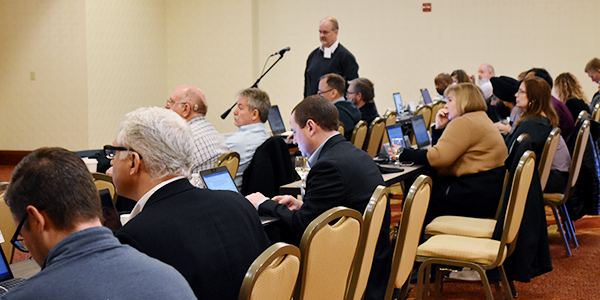WECC’s Stakeholder Engagement Task Force (SETF) last week floated a straw proposal that would make sweeping changes to the regional entity’s stakeholder group structure by consolidating or replacing most of its standing committees while winnowing out subcommittees not engaged in vital projects.
The proposal would have WECC retain its Reliability Assessment Committee (RAC) while disbanding the Market Interface (MIC) and Operating (OC) committees. It would also create a new Operations, Security and Market Interface Committee (OSMIC). Membership in the two remaining committees would be limited to a fixed number of stakeholders serving staggered terms, WECC said.
The RAC is the key stakeholder group involved in WECC’s resource adequacy initiative. “The RAC has developed a study program that provides reliability assessments aligned with the WECC Long-Term Strategy and Reliability Risk Priorities,” the SETF wrote. “Because this is a committee focused on delivering impactful work products, we propose to retain this committee.”
WECC earlier this year identified RA as seminal to its “invented” future, which is “characterized by a partnership where we put a strong focus on collaborating with stakeholders to strive for what we consider to be our common goal of having a reliable and secure interconnection.” (See WECC Seeks to ‘Invent’ Future with RA Forum.)
Meanwhile, the SETF said that while the OC and the MIC periodically deliver work products, they are primarily “networking and information sharing” committees.
“We believe that the primary purpose of the standing committees should be the delivery of seasonal, quarterly, annual or biannual work products. Stakeholder networking and information sharing should be viewed as a secondary benefit of participation on a standing committee,” the proposal contends.
The SETF plan would also disband the Joint Guidance Committee and create a new Performance Review Board (PRB) “to ensure the RAC and OSMIC are delivering relevant and timely work products to the appropriate audiences.”
The PRB would establish performance and stakeholder metrics to gauge the output and effectiveness of standing committee projects. The performance metric would focus on the “quantity and timeliness” of a committee’s work, possibly measuring the number of work products produced and the ability to meet deadlines. The stakeholder metric could focus on the “quality and dissemination” of that work, with specific metrics for the number of downloads or requests for presentations of a work product by outside organizations.
“We believe the best way to improve both the quality and quantity of stakeholder engagement at WECC is to give stakeholders the chance to help develop timely, relevant and meaningful work products. If WECC is producing rigorous and impactful work products, the best and brightest subject matter experts will want to participate,” the SETF wrote.
The PRB would report to WECC’s Board of Directors. It is proposed to be a small group with members drawn from WECC management, the board and stakeholders. The group would meet “as needed, but at least annually,” to evaluate standing committee performance.
“The PRB should provide guidance and leadership direction to the standing committees. It should not simply monitor the standing committees. The PRB should be an ‘active,’ not a ‘passive,’ body that scrutinizes the work of the standing committees,” the proposal states.
The proposal would also see WECC staff move beyond providing “administrative assistance” to stakeholder groups to assuming more of a “partnership” role in which those staff would contribute subject matter expertise to committees. WECC’s executive team would also assign a staff member as project management support for every standing committee project or initiative that will produce a work product, “ensuring all work meets WECC’s high standards of quality and rigor.”
The plan also seeks to disband all subcommittees, work groups and task forces not directly involved in developing standing committee work products.
“All stakeholder gatherings to share information, discuss issues and network will be managed through the WECC Strategic Engagement team and will take the form of trainings, workshops and forums,” the proposal said.
WECC is seeking stakeholder comments on the straw proposal by Nov. 2.





